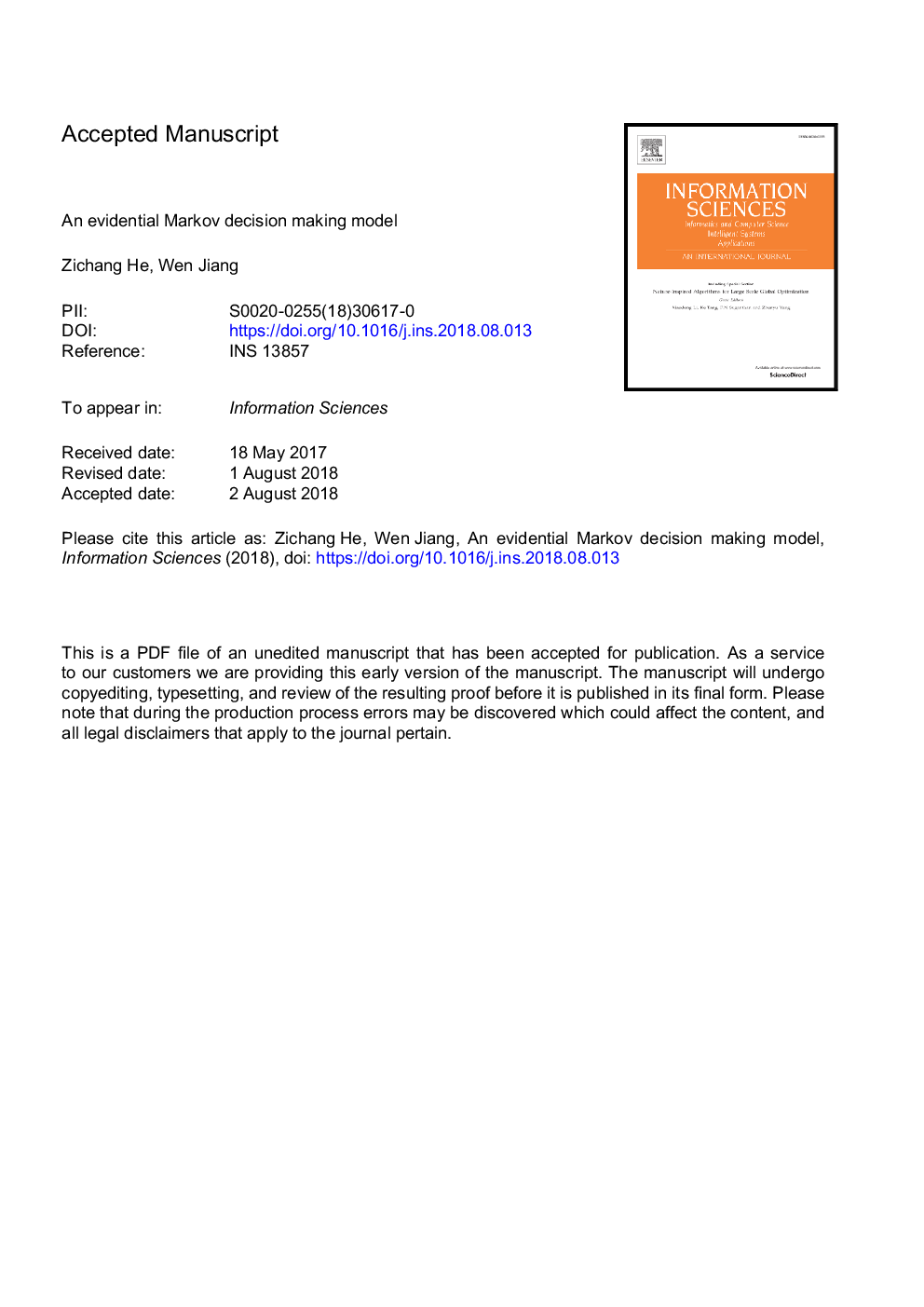| Article ID | Journal | Published Year | Pages | File Type |
|---|---|---|---|---|
| 6856146 | Information Sciences | 2018 | 41 Pages |
Abstract
The sure thing principle and the law of total probability are basic laws in classical probability theory. A disjunction fallacy leads to the violation of these two fundamental laws. In this paper, an evidential Markov (EM) decision making model based on Dempster-Shafer (D-S) evidence theory and Markov modelling is proposed to address this issue and to model the real human decision making process. In an evidential framework, the states are extended by introducing an uncertain state which represents the hesitance of a decision maker. The classical Markov model cannot produce the disjunction effect, which assumes that a decision has to be certain at one time. However, in the EM model, a state is allowed to be uncertain before the final decision is made. An extra parameter of uncertainty degree is defined by a belief entropy, named Deng entropy, to distribute the basic probability assignment of the uncertain state, which is the key to predict the disjunction effect. The EM model is applied in a classical categorization decision-making experiment. The model application results show that the disjunction effect can be well predicted, and the free parameters are less compared with the existing models. The comprehensive comparison and discussion show the effectiveness and rationalness of the new model.
Related Topics
Physical Sciences and Engineering
Computer Science
Artificial Intelligence
Authors
Zichang He, Wen Jiang,
